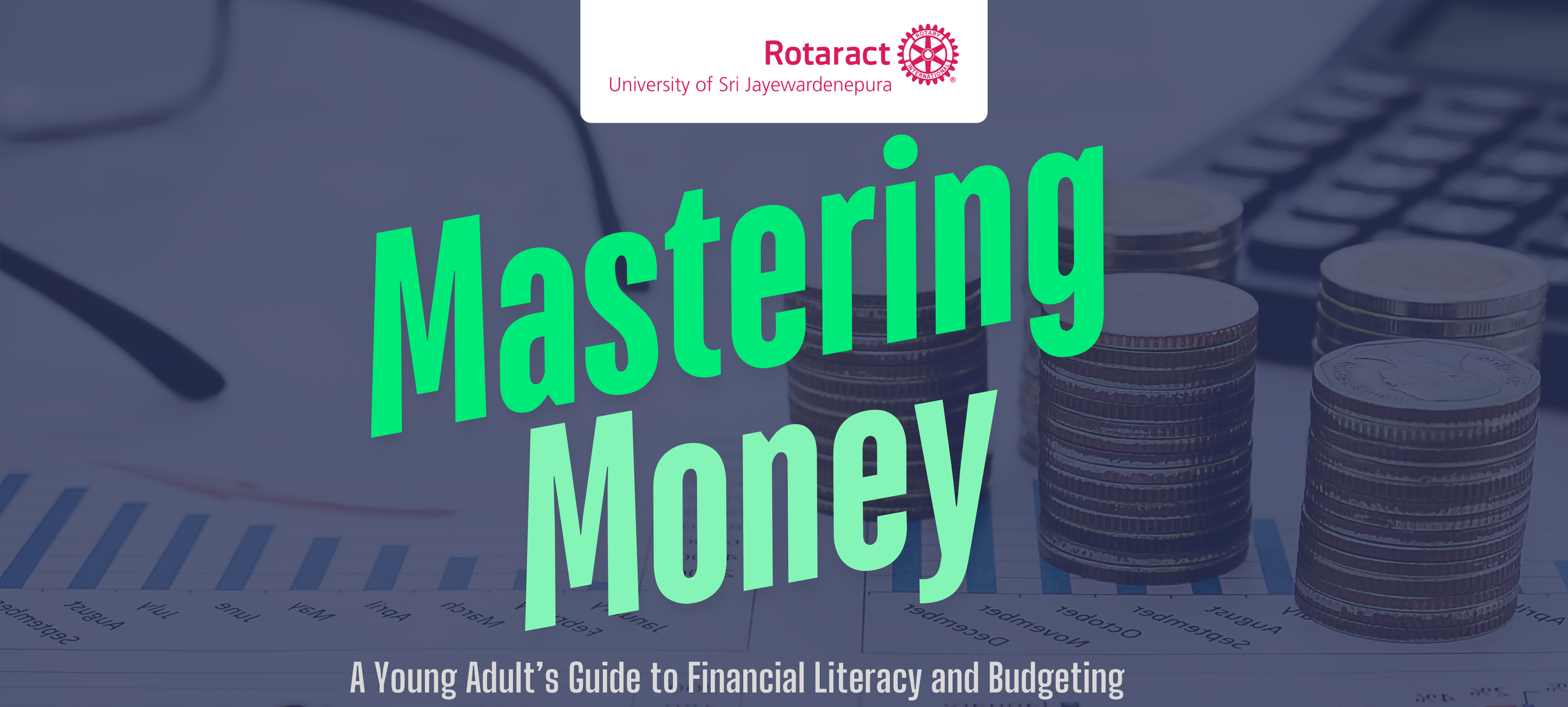Written by: Rtr. Buthma Menali
“An investment in knowledge pays the best interest.” – Benjamin Franklin
As an undergraduate, money management might not be the most exciting topic to discuss. But as a young adult, mastering it early can make life much easier. Imagine a future where financial stress doesn’t hold you back—where you can save for your dreams, spend wisely, and invest in a secure future! You won’t be disappointed for sure. So, let’s dive into knowing about the essential steps to keep your finances in check and build a stable financial future!
Financial literacy refers to the ability to understand and effectively use your financial skills. This includes budgeting, saving, investing, and managing personal debts too. Developing these skills helps young individuals to make informed decisions about their money and avoid financial pitfalls.
In a country like Sri Lanka, most of the undergraduates or young citizens come from middle-class families. And most of them depend on their parents while studying. Furthermore, we often get late in our ages to graduate and get a job on our own. During our early 20s, when most of the young adults in the world are doing their businesses, engaging in various careers, and pursuing higher studies like master’s or PhDs, we still struggle with our studies and exams. It’s true that some of us (undergraduates) are now finding our ways to be financially independent while studying so as not to be a burden for our parents. But still, when we consider the majority, they are not financially independent. Whether you’re an undergraduate juggling expenses or a young citizen stepping into financial independence, understanding how to budget and manage money is a game-changer.
Creating and Sticking to a Budget
A well-planned budget helps you to track income and expenses while ensuring that spending aligns with the financial goals. Some of the facts to consider when creating a budget are as follows:
- Determine your income—how much you’ll be getting from parents/Mahapola scholarship or bursary.
- List and categorise your expenses (rent, transportation, food, shopping, entertainment, etc.).
- Allocate your income for essentials first, such as rent and food, and then determine the rest of the expenses.
- If you feel stuck while deciding on your own, use apps that help to track expenses efficiently (e.g., YNAB, spreadsheets).
- Finally, evaluate your budget and ensure you’re on track regularly. Also, feel free to make necessary adjustments based on the financial situations.
Practice smart spending habits
While allocating the funds, you should avoid impulse purchases. It’s common that when we have money in our hands, we tend to increase our needs. But to develop our financial skills, we must make a shopping list and think before making non-essential purchases. Practicing on this will gain you benefits in the future. Always use price comparisons and take advantage of seasonal discounts.
Another thing you should practice in financial literacy is SAVING!
- You can follow the 50/30/20 rule. That means allocate 50% of the full income for necessities, 30% for other needs, and 20% for your savings.
- Investing is another method of saving. You can start small and invest in low-risk options like fixed deposits and mutual funds.
- Also, you can use some methods of saving like using cash boxes. There are these boxes that have marked several small amounts of money as a chart, and each time you save in that box, you can cross over the amount. By using these types of boxes, you can save a fixed amount for the given period of time.
Why is financial literacy important?
So for the final thoughts, let’s see how financial literacy empowers individuals to make smart decisions on their finances.
As a main benefit, we can prevent devastating finance mistakes. For someone unaware of how to manage budgets and take financial decisions in different situations, they get lost, and stress may flood over. So, being literate in these things from a younger age can avoid making mistakes in finance for the future too.
Also, as young adults, we have lots of goals on our own to do in our 20s. Some of them are travelling, doing adventurous things, dining out with friends, doing courses to gain extra knowledge on different things, and the list goes on. For girls, they like to spend a fair amount of money on skin care, hair care, and the latest fashionable items as well. So, by understanding how to budget and save money, we all can set a course for achieving our dreams someday. Though someone may not be able to afford a dream today, they can create a plan that can help make it happen.
Most importantly, and as the last fact, I must mention that financial literacy gives rise to confidence. We can be prepared for the unforeseen outcomes in any situation and handle positive as well as negative impacts anywhere. With knowledge about finances, individuals can approach major life choices with greater confidence.
The earlier you develop these habits, the better positioned you will be for financial independence and long-term success.


0 Comments